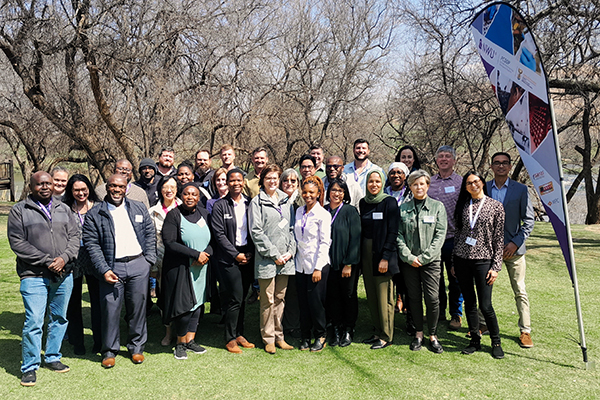South Africa and the North-West University (NWU) are stepping up to develop the African continent’s capabilities to develop its own human vaccines.
The glaring disparities in vaccine access during the Covid-19 pandemic has led to South Africa taking significant strides to bridge the gap between the global north and the African continent's vaccine development needs.
A pivotal initiative is the South African mRNA Vaccine Consortium (SAMVAC), led by the South African Medical Research Council (SAMRC), in which the NWU's DSI/NWU Preclinical Drug Development Platform (PCDDP) is a crucial component.
Prof Rose Hayeshi, associate professor and director of the PCDDP, says they are a Good Laboratory Practice (GLP) certified facility for preclinical toxicology testing. “It plays a pivotal role in ensuring the quality and safety of vaccine candidates for this consortium.”
The PCDDP's involvement in SAMVAC is essential for the successful development of vaccines within the country.
According to Prof Hayeshi, an early challenge emerged during the testing phase for one of the initial vaccine candidates where only the animal testing could be done under GLP by the PCDDP, and the outsourced diagnostics labs were not GLP accredited.
“This highlighted the need for a comprehensive ecosystem for preclinical GLP toxicology studies in South Africa,” she says.
Looking to the future
To address this, the PCDDP organised a much-needed workshop on 13 and 14 September, which brought together a diverse group of stakeholders including regulators, other Contract Research Organisations (CROs) facing similar challenges, diagnostics labs, research institutes and industry experts.
Prof Hayeshi says the workshop aimed to foster collaboration and innovation for establishing a seamless ecosystem for GLP toxicity testing in South Africa – benefiting not only the SAMVAC consortium, but also pharmaceutical development as a whole.
“It marked a significant milestone towards a fully functioning GLP toxicity testing ecosystem in South Africa. This gathering of stakeholders and various organisations shows an understanding of current issues and a willingness from the NWU, the PCDDP, and all partners to answer societal needs by co-creating this preclinical GLP testing ecosystem for the advancement of healthcare,” says an excited Prof Hayeshi.
One of the workshop's key outcomes was the formation of a steering committee comprising PCDDP members, local diagnostics labs, animal facilities, a business developer and an international GLP expert.
The NWU’s own Prof Hayeshi will lead this committee, emphasising the university’s commitment to driving this initiative forward.
“This collaborative effort not only addresses the challenges highlighted by the Covid-19 pandemic, but also contributes to the broader field of pharmaceutical development in South Africa and the continent. It aligns with the NWU’s culture of active citizenship and community engagement, aiming to create a more just, healthy, and sustainable society.”
By fostering collaboration, innovation and a commitment to excellence, Prof Hayeshi says this collaborative endeavour paves the way for a brighter future where vaccines and pharmaceuticals are developed within and for the continent, with the utmost quality and safety standards, ensuring the well-being of all citizens.

Various stakeholders met recently to discuss the establishment of a Preclinical GLP Toxicity hub. NWU academic Prof Rose Hayeshi has been chosen to lead a multi-stakeholder steering committee to take the discussions forward.
